Labor’s 10 years in power: Own goals on Commonwealth Games and women’s football have hurt our major events reputation
Victoria can claim the title of Australia’s sports and events capital but in 10 years of Labor rule there have been some devastating fails and other states are catching up fast.
Victoria
Don't miss out on the headlines from Victoria. Followed categories will be added to My News.
Few could argue that Victoria is still Australia’s sports and events capital, but some major own goals in the last couple of years – headlined by the costly Commonwealth Games fiasco – have seriously dented a cherished reputation which cannot be taken for granted.
No other state boasts the Australian Open tennis, a Formula One race, public holidays to celebrate the Melbourne Cup and the AFL Grand Final and a thriving music, theatre, arts and fashion scene.
Having the right places for the word’s best to do their thing – and to pack crowds in to watch them – helps.
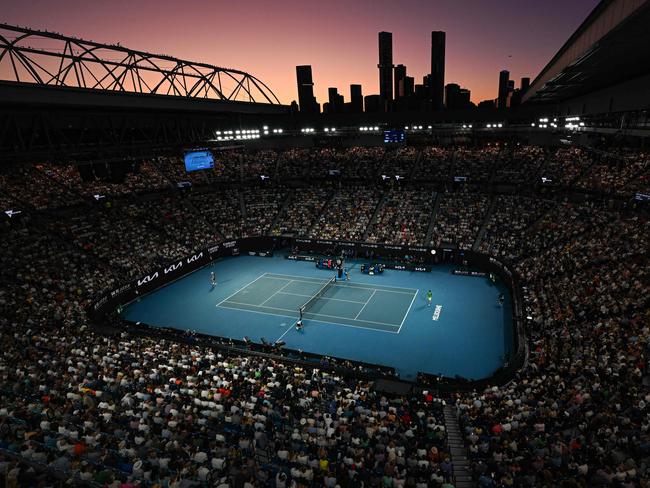
Successive Victorian governments have poured millions of dollars into state-of-the-art infrastructure close to the city so venues such as the MCG, Melbourne and Olympic Parks and Marvel Stadium and AAMI Park give the state an edge over its competitors.
Governments have long brought out the chequebook to make sure Melbourne gets the best events too – whether it’s star English Premier League soccer teams such as Liverpool and Manchester United or a one-off Melbourne show from legendary US pop crooner Billy Joel.
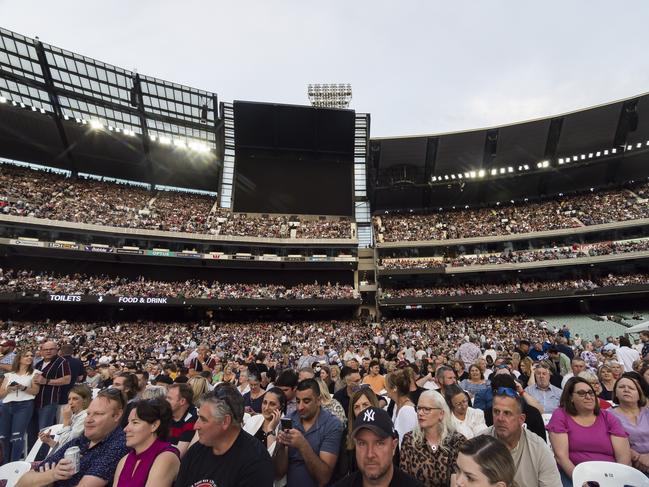
Just months after Daniel Andrews came to power, Visit Victoria assumed the state’s events calendar responsibilities from the Victorian Major Events Company – an entity sometimes criticised for overspending but which rarely missed an event Melburnians would want to see.
Described by the government as a “game-changer”, Mr Andrews said: “Visit Victoria will sell our state’s great strengths like never before. We need to refresh our approach so we remain number one.”
Since the shake-up, showpiece events such as the Australian Open at Melbourne Park, the Grand Prix, the Spring Racing Carnival, the Phillip Island MotoGP and Boxing Day Test remain strong – with some growing in popularity and stature.
More importantly, they have been locked in on mid to long-term deals despite other states’ efforts to hijack them away from Victoria.
The AO has been secured in Melbourne until at least 2046, even if the state did provide Tennis Australia with close to $100m in Covid bailouts.
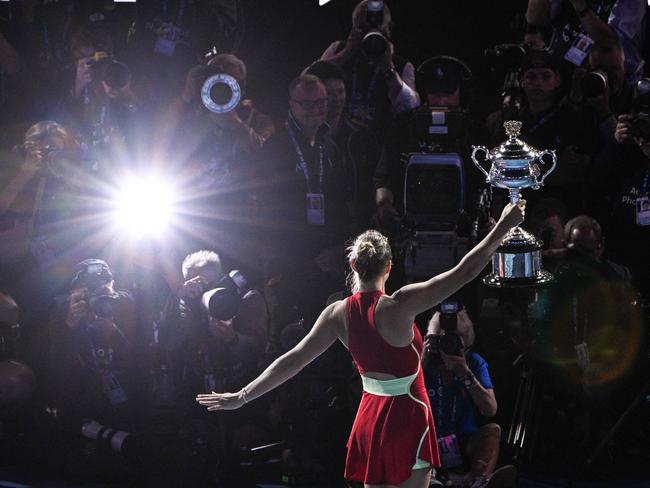
The F1 race at Albert Park will roar in town until at least 2037, after the government recently signed an extension.
And despite an uncomfortable delay, a new seven-year deal was struck to keep the Boxing Day Test at the MCG until at least 2030.
As part of the deal, the 150th anniversary Ashes Test between Australia and England will be played at the MCG in 2027.
Events like the Rip Curl Pro surfing at Bells Beach, the introduction of the 17-night Always Live music events program and the Melbourne International Comedy Festival help with Victoria’s chest-beating about being Australia’s cultural headquarters.
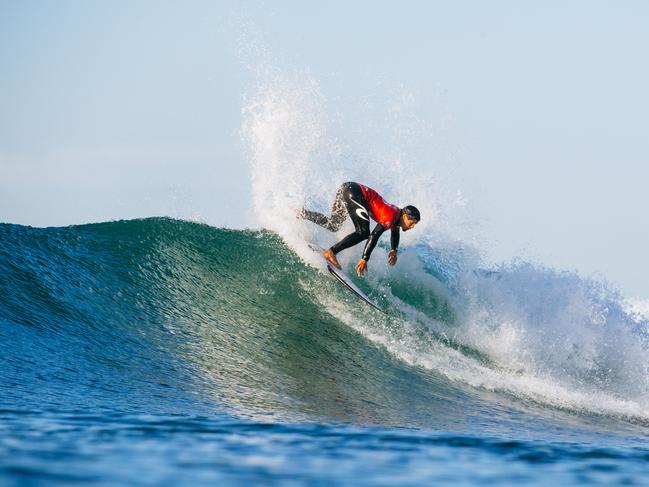
So too has the re-emergence of the MCG as a monster music venue, hosting the likes of Ed Sheeran and Guns N’ Roses recently, as well as Taylor Swift’s record-breaking run of shows.
But we don’t have it all our own way anymore. Other states are fast catching up, and there have been some devastating fails.
Despite Australia being swept up in Matildas fever, Melbourne hosted only match for our high-flying national women’s team during last year’s FIFA Women’s World Cup – despite the government pouring $60m of taxpayer money into the “Home of the Matildas” base at Bundoora in the city’s north.
Worse still, Victoria will not host one game of Australia’s 2026 Women’s Asian Cup after the government failed to submit a bid.
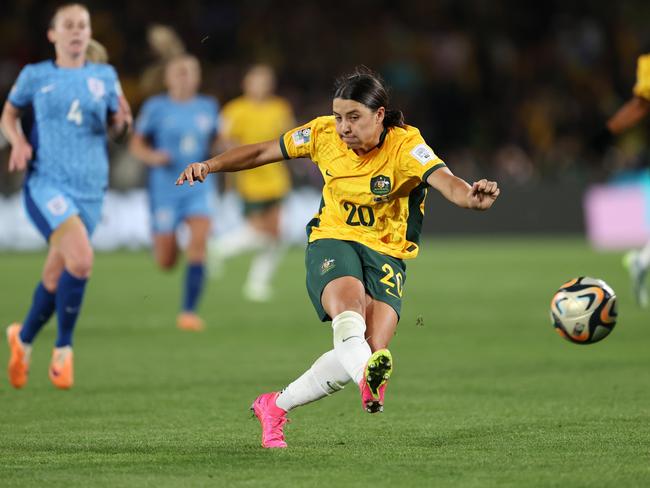
There has been a notable absence of UFC events in Victoria since 2019.
The Labor government committed a policy U-turn in 2015 to allow cage fighting to be conducted in Victoria, and Melbourne promptly set two crowd records for the event.
But Sydney and WA have stolen Melbourne’s thunder since, snapping up multi-year deals for UFC events while Victorians fly interstate for their fix or watch on TV.
It’s a similar story on the golf course.
Melbourne has some of the nation’s best fairways and its famed sandbelt will come alive for the Australian Open from Thursday, with the likes of Cam Smith, Hannah Green and Joaquin Niemann in action.
Snatching the Open from Sydney was a smart move and something our sporting calendar has been screaming out for.
Now it must lock it in as an annual fixture, experts say.
Despite Mr Andrews’ well-documented love of golf, Victoria was too slow off the mark in recognising the pulling power of the LIV tour, which lures fans from near and far for its party vibe and modern feel.
South Australia has been the winner at our expense as it supercharges its own fast-growing events reputation.
This year’s Melbourne Cup Carnival was one of the best in years, in terms of crowds and atmosphere.
But NSW has come hard at Victoria’s famed race days, splashing the cash and fixturing big-money events to clash with ours.
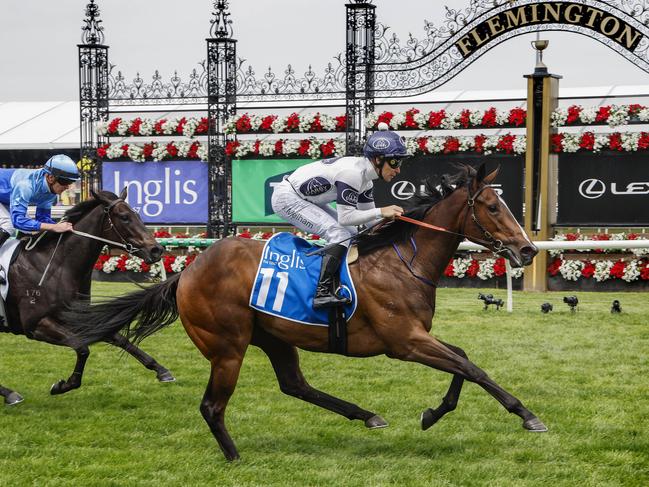
While our events, centred around tradition, style and substance (as well as better infrastructure), have thus far outshone a NSW spending spree and desperate cries for relevance, the fact Sydney has gone so hard should act as a warning.
Then there is the Commonwealth Games debacle.
While one of Mr Andrews’ first big moves as Premier was to pay more than $1bn to scrap the East West Link, his last was to tear up the contract for the 2026 Games.
Victoria ditched the Games in July last year, claiming the cost had blown out from $2.6bn to an incredible $6bn.
The decision was an international embarrassment, with the massive reputational damage being exacerbated by news that Glasgow will now host the event for just $200m, entirely funded by a compensation bill charged to Victorian taxpayers.
In another humbling which made global headlines, Europe-based music promoter Richard Beck in August won a $2.8m marathon lawsuit against the Australian Grand Prix over the snap cancellation of a Robbie Williams performance scheduled as part of the Covid-hit Formula 1 event in March 2020.
The Australian Grand Prix Corporation was alleged to have breached its obligations and engaged in misleading conduct when it stated then chief health officer Brett Sutton ordered the gig’s cancellation, despite Dr Sutton having texted organisers saying the cancellation was ultimately a matter for them.
Tourism, Sport and Major Events Minister Steve Dimopoulos said big events had generated $39.2bn in tourism spending in 2024.
“We’re the major events capital, the sporting capital, the live music capital and the culinary capital of Australia,” he said.
“We’re the only city on the planet with a Grand Prix and Grand Slam, the Boxing Day Test and the AFL Grand Final, and the race that stops the nation.”
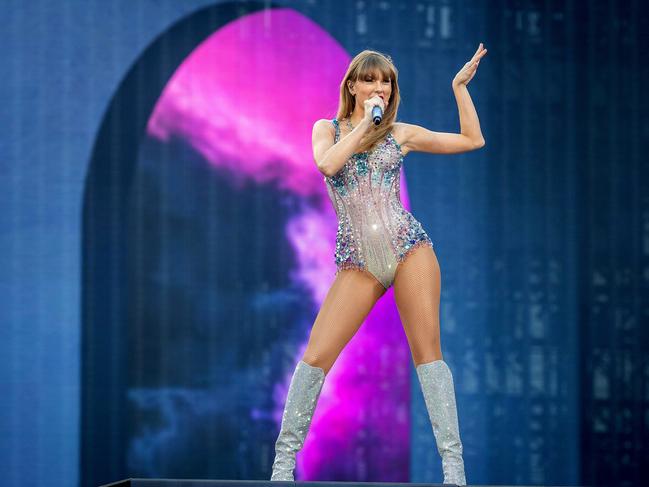
Victoria Tourism Industry Council chief executive Felicia Mariani said the total value tourism had contributed to Victoria had doubled since 2014, and the visitor economy had “bounced back remarkably” from two years of Covid shutdowns.
“Achieving this growth has been a hard-fought battle, and one that we cannot afford to take for granted,” Ms Mariani said. “As we look to the future, there is concern that the recent decision to slash the destination marketing budget for Victoria by $26m per annum over the next two years will have a detrimental effect on the stellar success that we’ve clocked up over the past 10 years,” she said.
“Strong destination marketing has been the bedrock of our success, and while an exciting major event calendar is a great impetus for visitation, no destination can simply rely on events to carry its performance.”
Accommodation Australia (Victoria) general manager Dougal Hollis said the state deserved “congratulating” for securing long-term hosting rights contracts for key events, saying they drove significant demand into city hotels.
Event-related occupancy rates in Melbourne typically exceeded 85 per cent, he said.
The certainty of those contracts gave hotel investors “the requisite confidence to build new hotel infrastructure in Victoria”, he added.
“Melbourne (predominantly) has led the nation in new hotel rooms developed over the past six years, welcoming over 7000 new hotel rooms,” he said. “To balance out the peaks and troughs of demand experienced in hotels, particularly in the winter season and during midweek periods, accommodation hoteliers would welcome a continued focus by government on major event attraction into Victoria during these traditional off-peak periods,” he added.
But shadow minister for tourism, sport and events, Sam Groth, warned: “After 10 years of Labor, Victoria has fallen from a global leader in events and tourism to a destination struggling to keep up with interstate rivals.
“Whilst others grow their tourism and events sector – Victoria is going backwards with a declining share of visitors, business events and total tourism spend.
“The Commonwealth Games debacle not only wasted $600m but caused massive reputational harm to our state that will take decades to fully recover from. Labor cannot manage money, cannot manage our tourism and events economy and Victorians are paying the price.”



